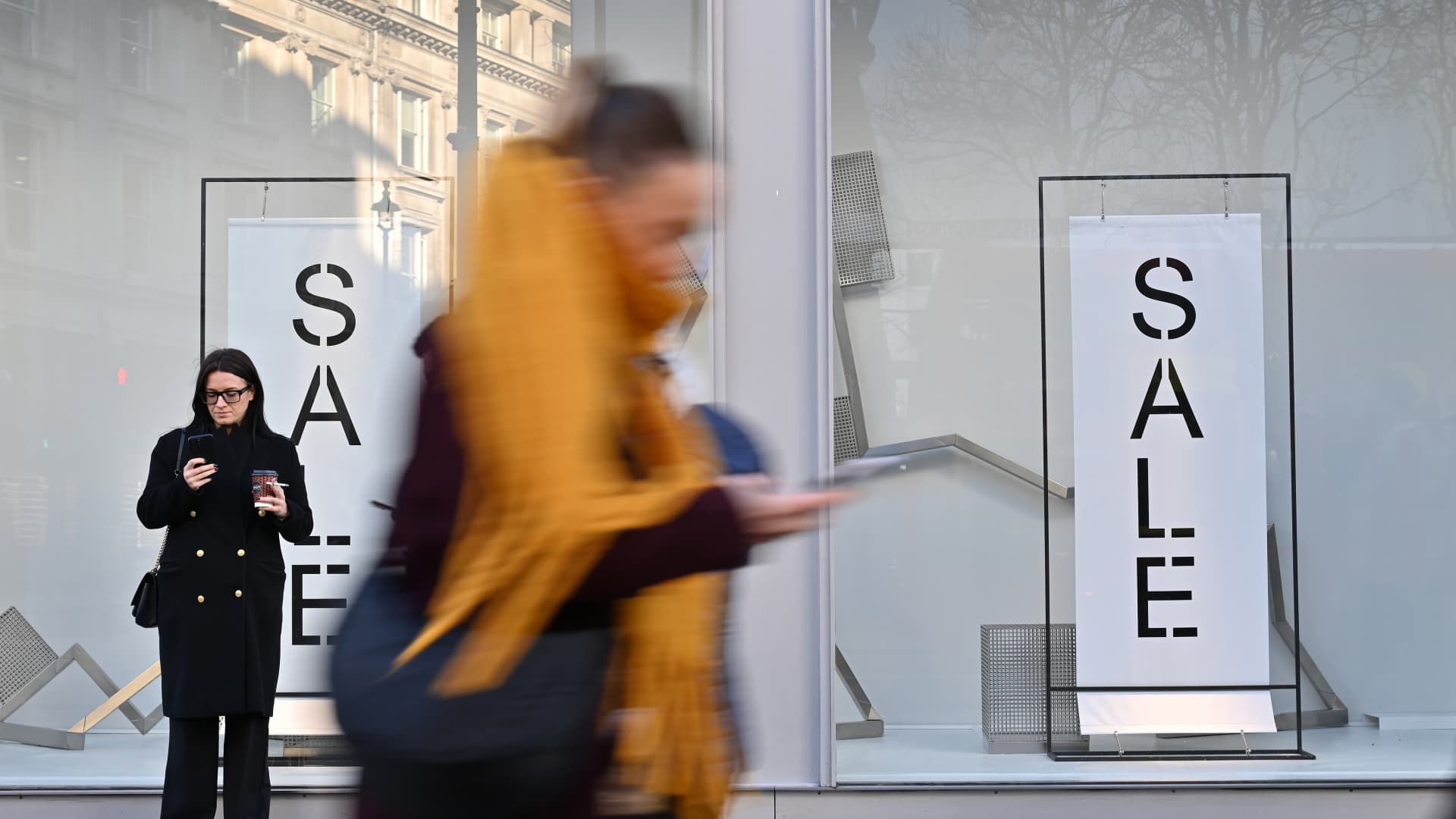A woman stands with a coffee and looks at her phone on U.K. high street.
John Keeble | Getty Images News | Getty Images
British retailers have warned that Chinese companies risk flooding the U.K. with low cost goods as U.S. President Donald Trump’s tariffs choke off access to the world’s largest consumer market.
The British Retail Consortium said domestic firms had raised alarm about cheaper goods being “rerouted” away from the U.S. and toward other markets in the wake of Trump’s 145% tariffs on China, along with the closure of a key tax loophole for low-cost imports.
“Retailers are very concerned about the risk of some lower quality goods being rerouted from the US to Europe as a result of the tariffs,” Helen Dickinson, chief executive at the BRC, said in a statement.
Analysts flagged that risk was especially pronounced among Chinese producers selling via online marketplaces such as Amazon, Shein and Temu.
“The likes of Shein and Temu, I guess there is a risk that they choose to direct exports over to Europe away from the U.S. and that pressures pricing, particularly for discount retailers and retailers at the lower end,” Richard Chamberlain, head of European consumer discretionary equity research at RBC, told CNBC’s “Street Signs Europe” on Monday.
Chamberlain added that this could hit lower cost British and European firms like clothing giant Primark and household goods store B&M. Primark declined to comment on the matter, while B&M did not immediately respond to CNBC’s request for comment.

Earlier this month, President Trump signed an executive order ending a near century-old “de minimis” tax loophole for imports worth up to $800, in a move set to stymy the rapid growth of low cost Chinese retailers such as Shein and Temu.
Now, U.K. retailers are calling for the U.K. government to follow suit for its own tax exemption on imports worth up to £135 ($178).
“In light of current geopolitical tensions, the Government should review the de minimis rules to ensure the best outcomes for UK retailers and their customers,” BRC’s Dickinson said.
Andrew Goodacre, CEO of the British Independent Retailers Association (BIRA), told CNBC that even before the tariff announcement, member firms had been raising concerns about the volume of items coming into the country from Chinese companies and calling for an end to the tax-free import threshold.
“For many months, we have been asking the government to review the current duty de-minimis,” Goodacre said by email. “Billions of products every year are being sold through the large marketplaces, entering the country duty-free and also avoiding any VAT obligations.”
“The thought of Chinese companies dumping even more goods through these channels, a real possibility, is a worry for large and small retailers,” he continued.
“Whilst customers will see lower prices, it will set an unfair marketplace leaving bricks and mortar stores at an even greater disadvantage than normal.”
However, Chamberlain suggested that the ability of Chinese firms to flood other markets could be limited, as the added cost of selling into the U.S. drives up their costs across the board.
“Those Chinese e-tailers are facing cost rises in their own right, especially with the changes to the de minimis rules that should cause them to have to pay import duties on exports into the U.S. So that may mean that they have to raise prices globally,” he noted.





